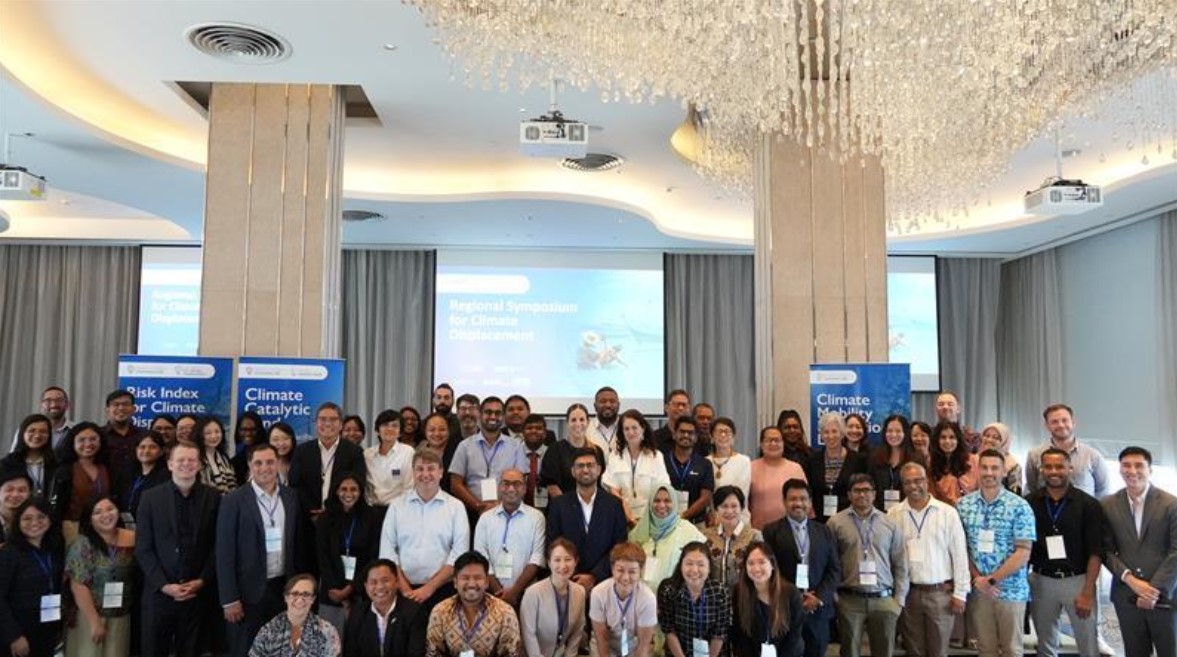
The University of the Philippines (UP) Resilience Institute (UP RI) – Nationwide Operational Assessment of Hazards (UP NOAH) Center, along with the International Organization for Migration (IOM) and the Asian Institute of Technology (AIT) organized the 2nd Climate Mobility Innovation Lab – Climate Displacement Symposium in Bangkok, Thailand last 24-27 June. The symposium gathered over 120 policymakers, scientists, data and technical experts, and stakeholders that are committed to the development of the Risk Index for Climate Displacement (RICD), a predictive tool designed to further the understanding of climate change-driven population movements. The workshop was supported by the Directorate-General for European Civil Protection and Humanitarian Aid Operations (DG-ECHO) and the IOM Development Fund.
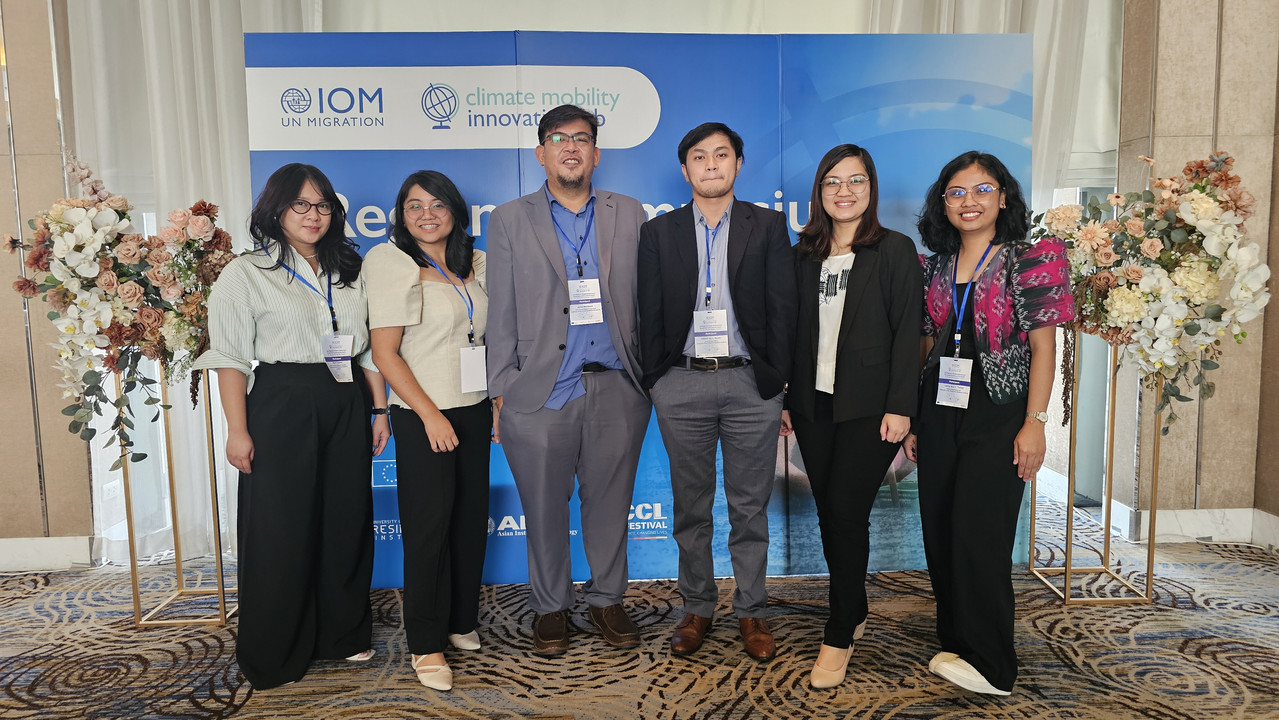
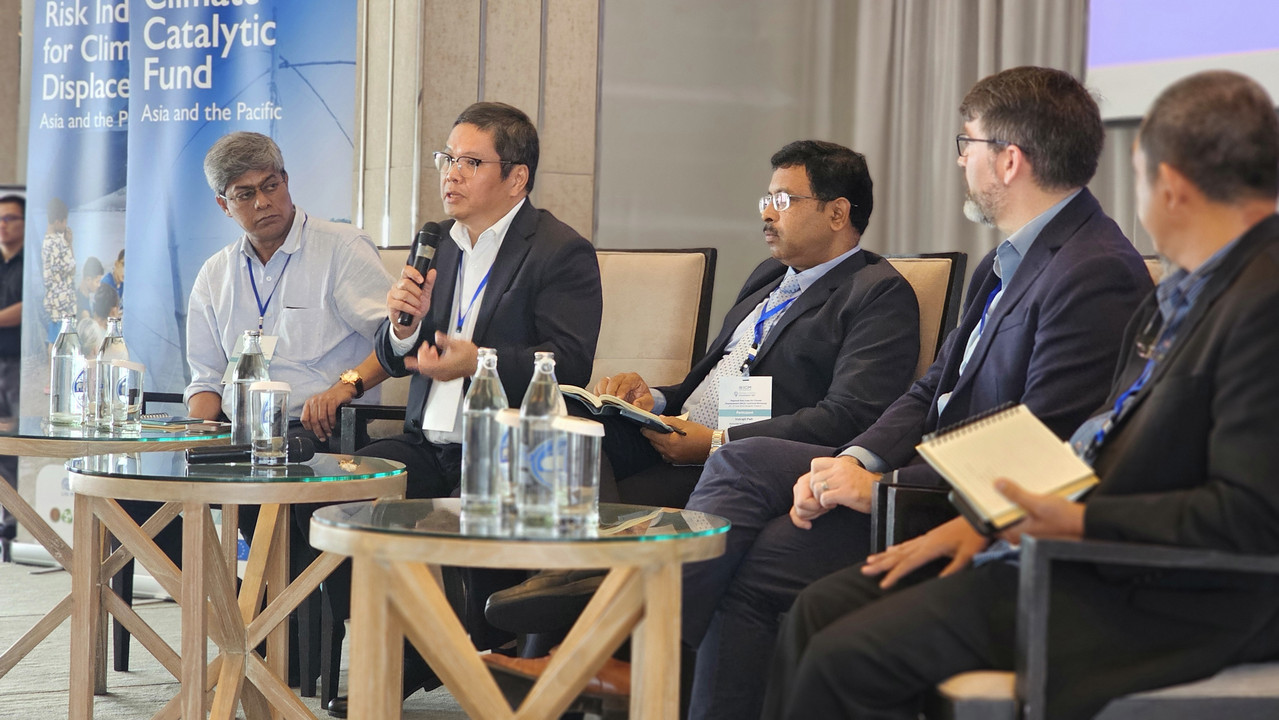
The UP RI–NOAH Center was represented by Executive Director Dr. Alfredo Mahar Lagmay, EnP. Jerico Mendoza, Engr. Steffanie Chua, Engr. Leony Timbal and Mr. Gifford Jay Agudo from the Flood Modelling Component (FMC), EnP. Joy Santiago, EnP. Arge Louis Esquivel and Ms. April Dawn Tegelan from the Planning Component, and Mr. John Kenneth B. Suarez from the Hazards Assessment Team (HAT). UP RI Fellows, Dr. Juan Pulhin from UP Los Banos (UPLB) and Mr. Siegfred Roi L. Codia from UP Diliman (UPD) were also present at the event.
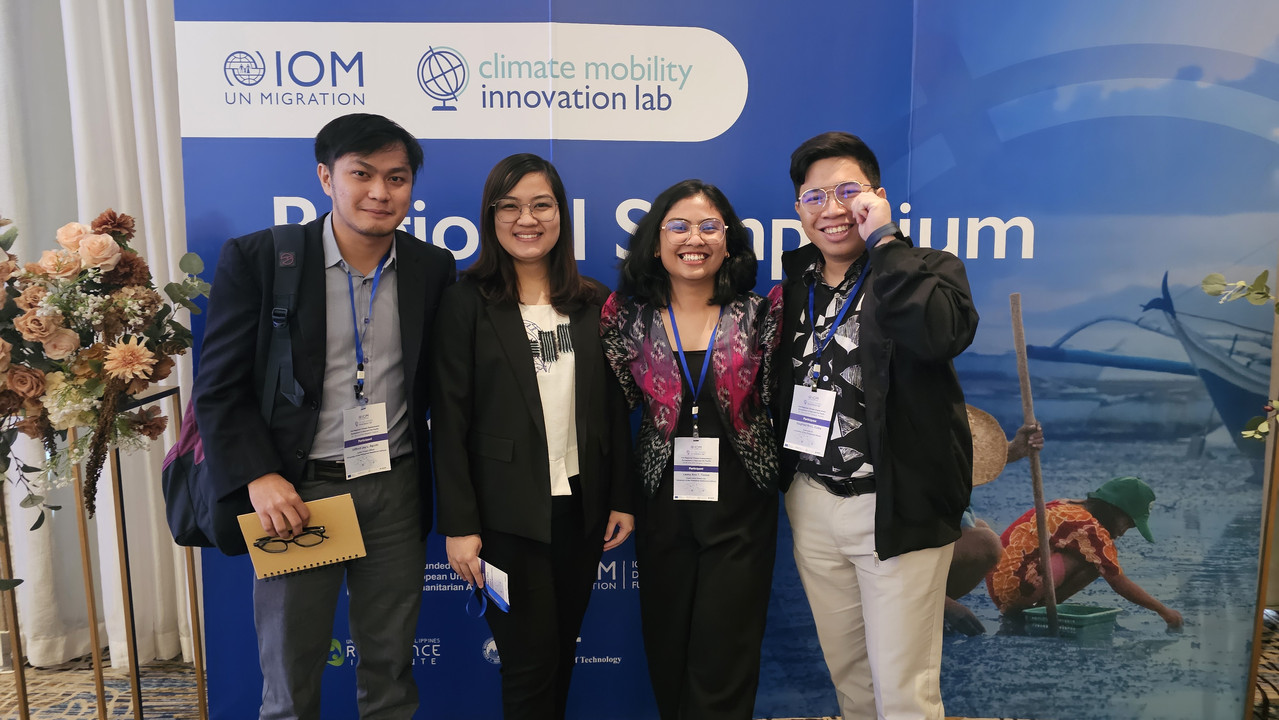
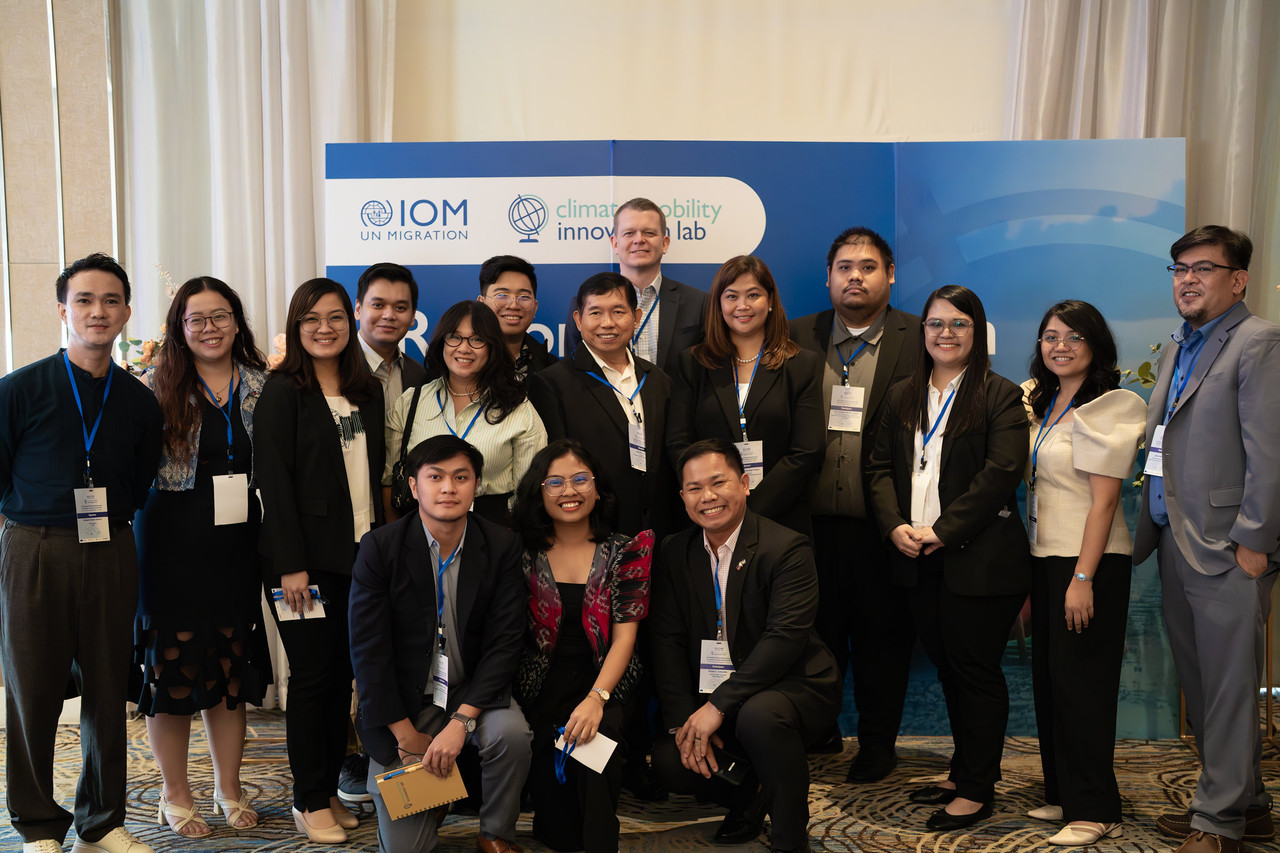
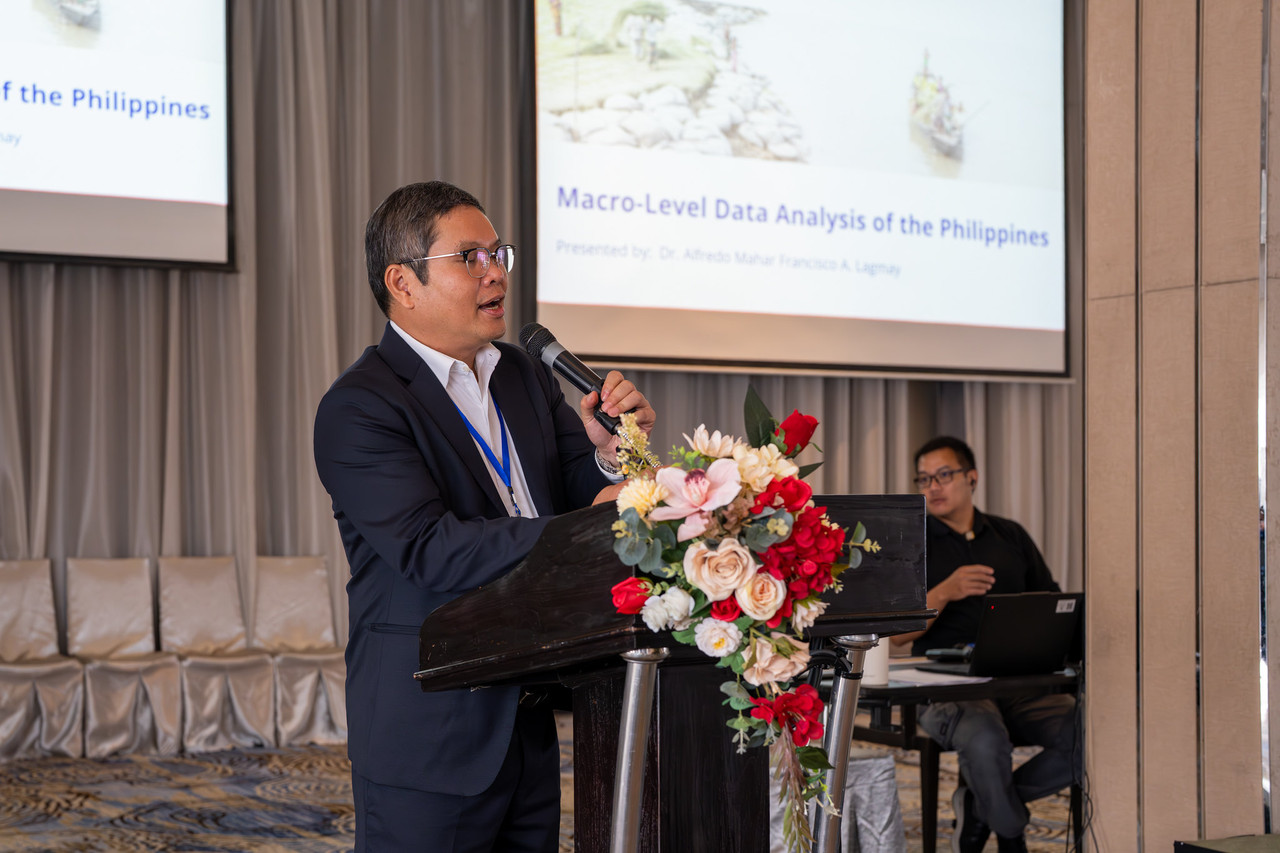
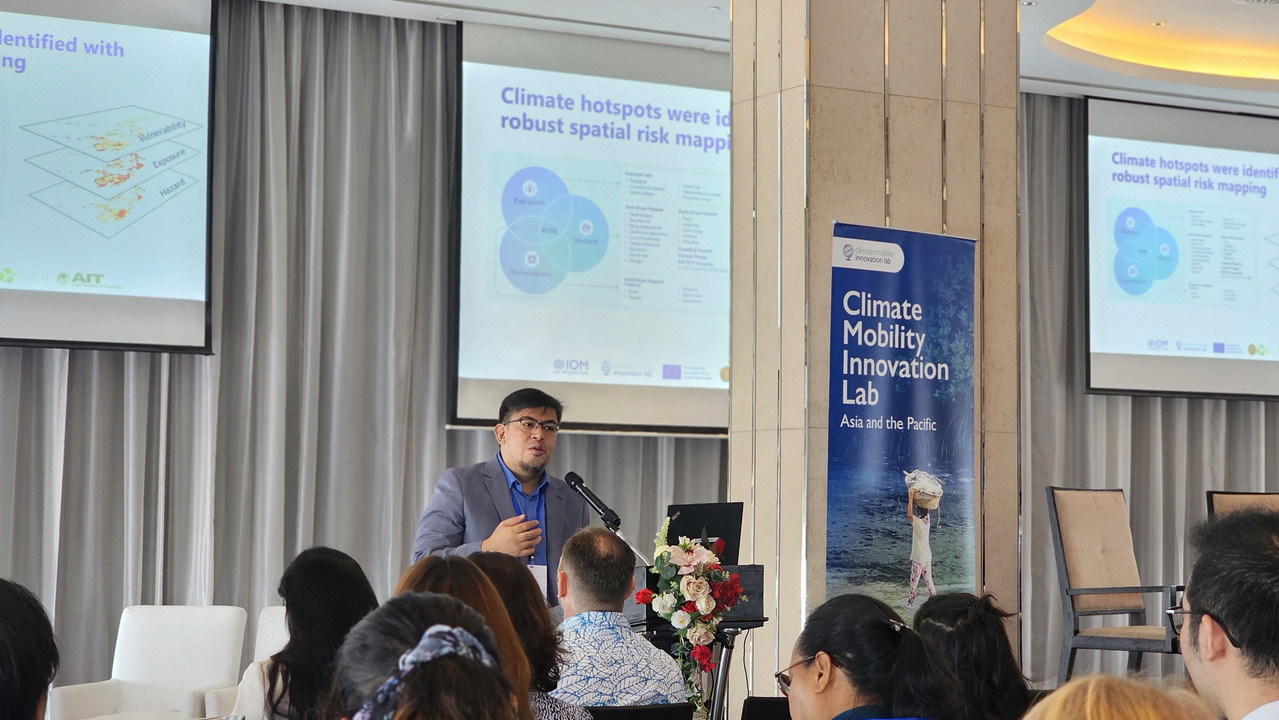
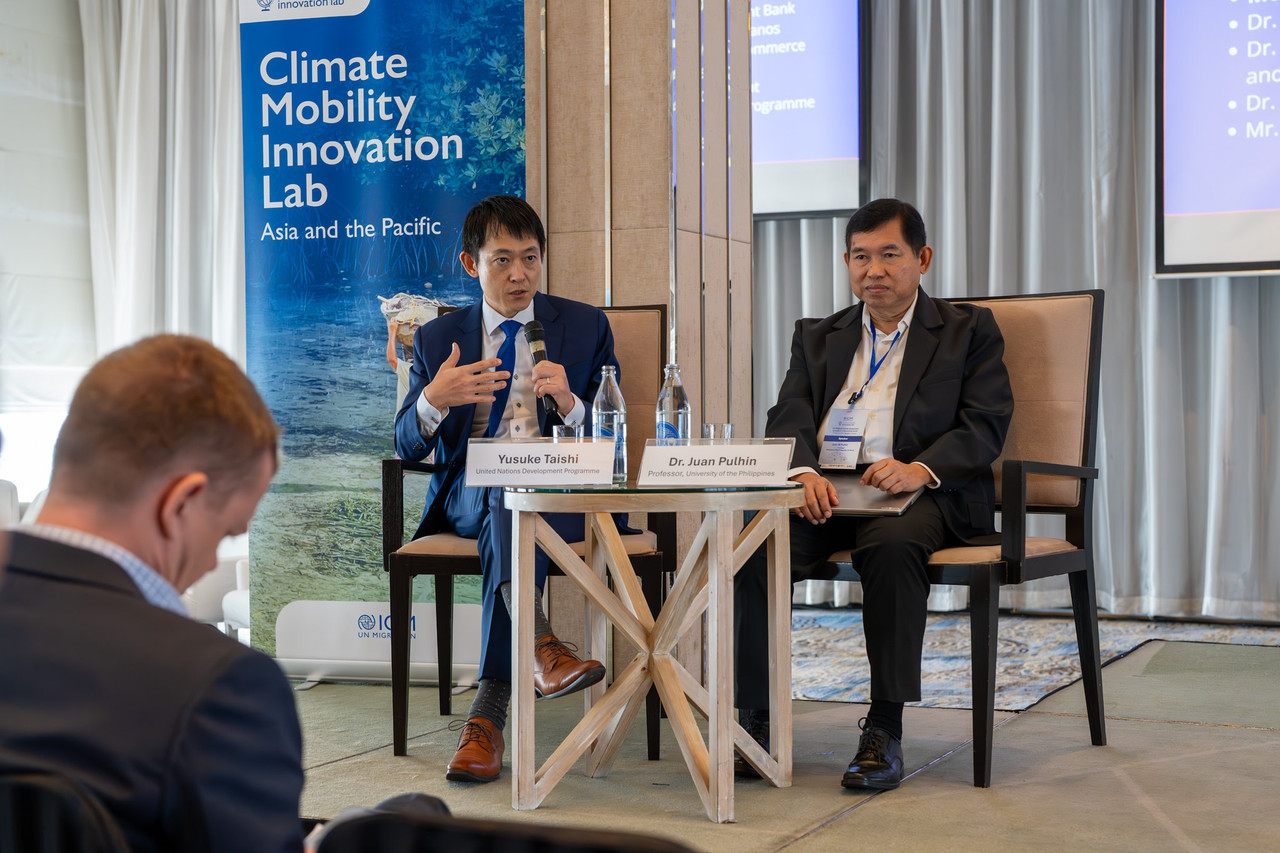
The symposium proper opened with several key speakers from different relevant organizations including Dr. Diana Rose S. Cajipe, Under Secretary of the Department of Social Welfare and Development (DSWD) in the Philippines, Ms. Rania Ahmed, Director of Climate Action of the International Organization for Migration (IOM) Headquarters, Geneva, Ms. Mila Marie Lomarda, Programme Officer for Disaster Preparedness of the DG-ECHO Regional Office in Bangkok, who spoke in behalf of Mr. Davide Zappa, and Dr. Christine Loh, Chief Development Strategist from the Hong Kong University of Science and Technology. This was followed by the presentation of Mr. Bradley Mellicker, Head of the Climate Mobility Innovation Lab (CMIL), IOM, about the continuously growing scale and complexity of climate-related displacement, especially in the Asia-Pacific.
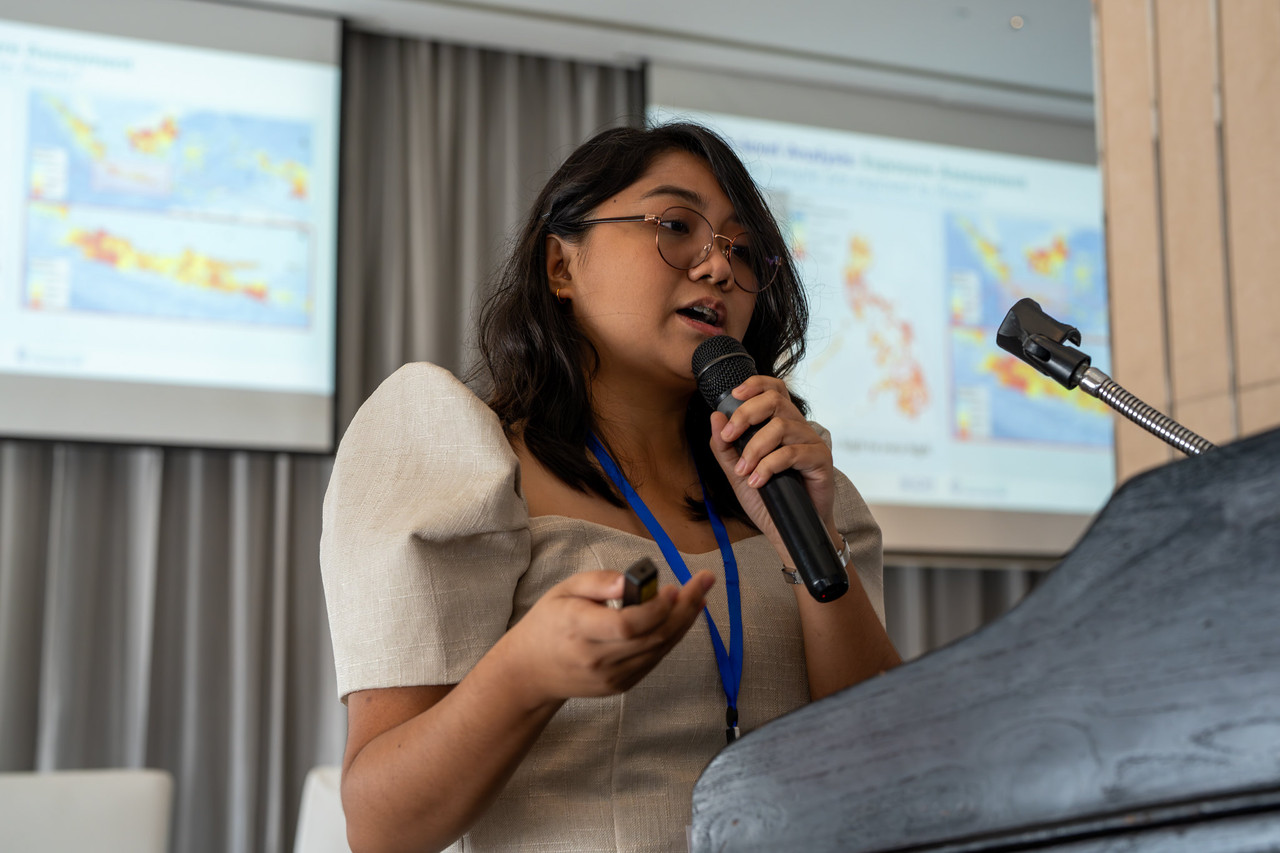
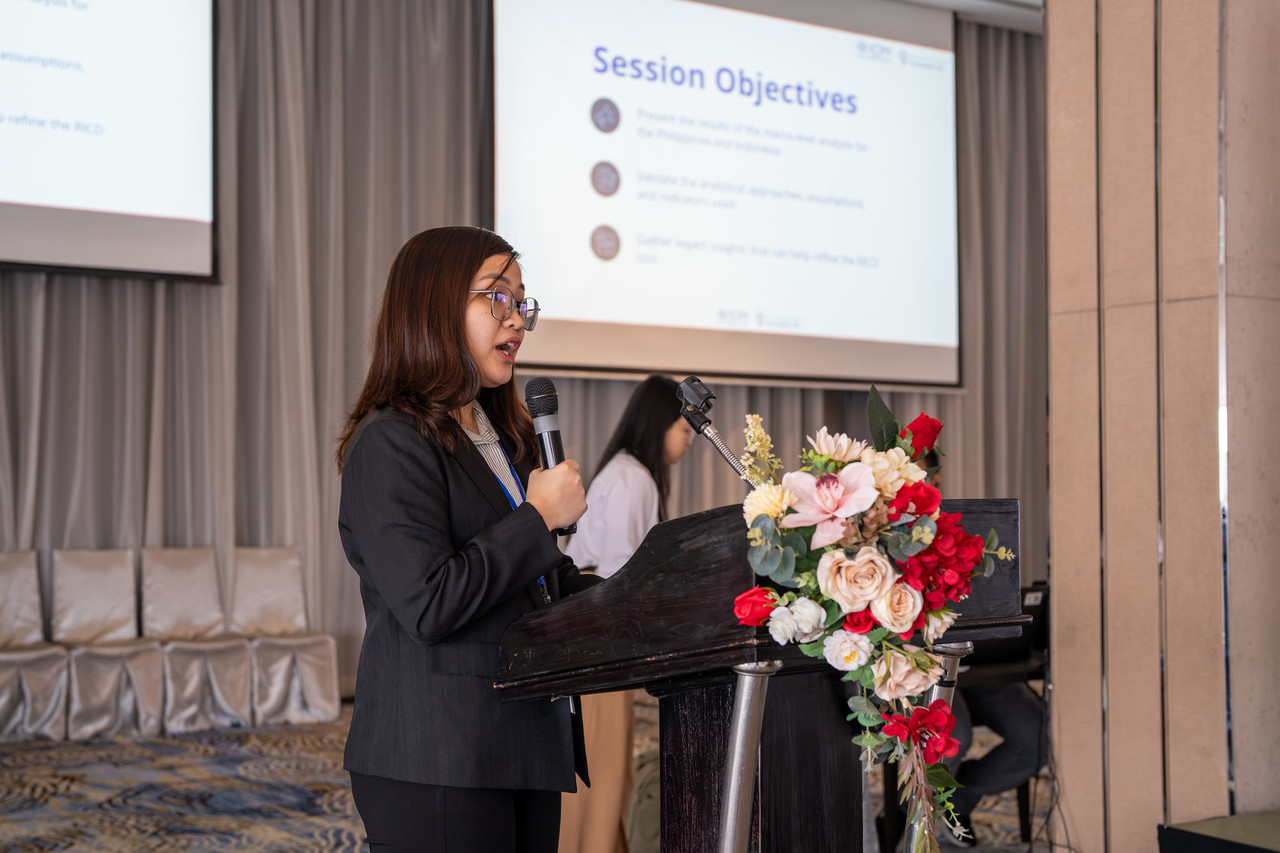 Engr. Chua outlines the objectives of the Macro-Level Data Analysis session.
Engr. Chua outlines the objectives of the Macro-Level Data Analysis session.
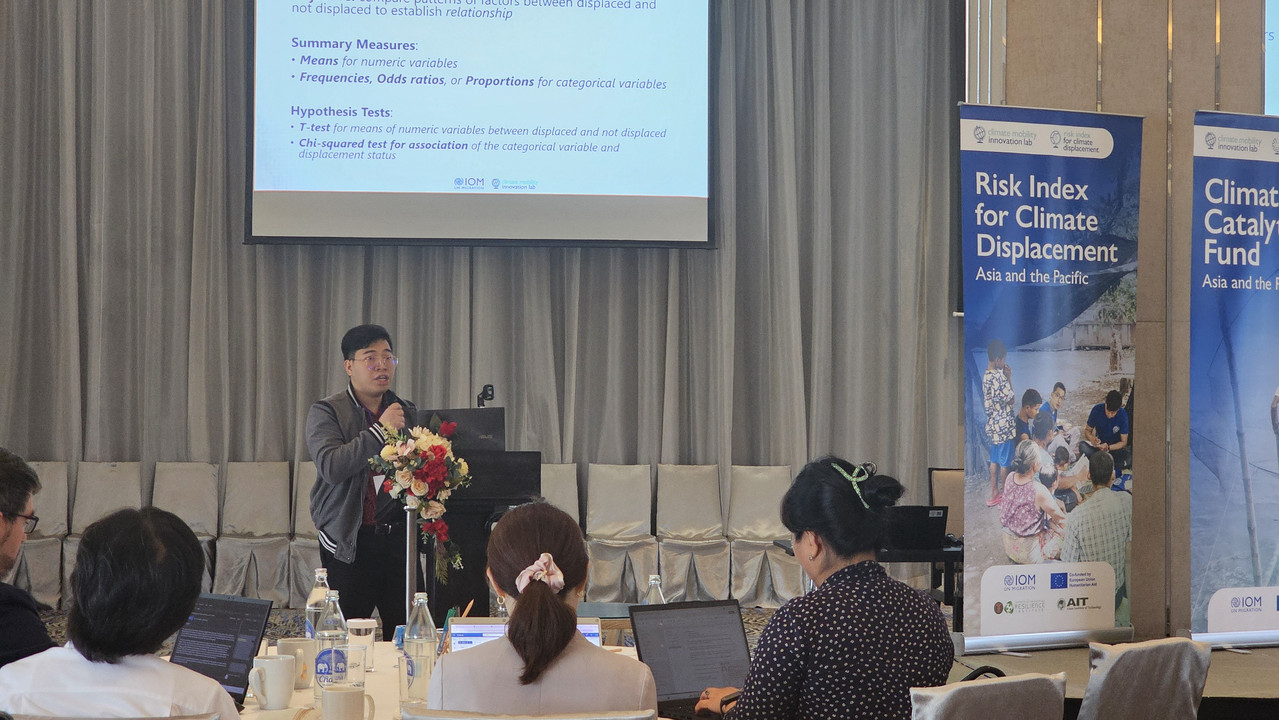 Mr. Siegfred Roi L. Codia discusses how micro-level insights can sharpen predictive tools and guide tailored adaptation and preparedness strategies.
Mr. Siegfred Roi L. Codia discusses how micro-level insights can sharpen predictive tools and guide tailored adaptation and preparedness strategies.
Following the symposium proper was the RICD Technical Workshop, where Mr. Robert E.A. Borje, Vice Chairperson and Executive Director of the Climate Change Commission (CCC), Philippines, gave his opening remarks, highlighting the Philippines’s lived experience of climate-related displacement, emphasizing the country’s vulnerability as an archipelago frequently hit by typhoons and extreme weather.
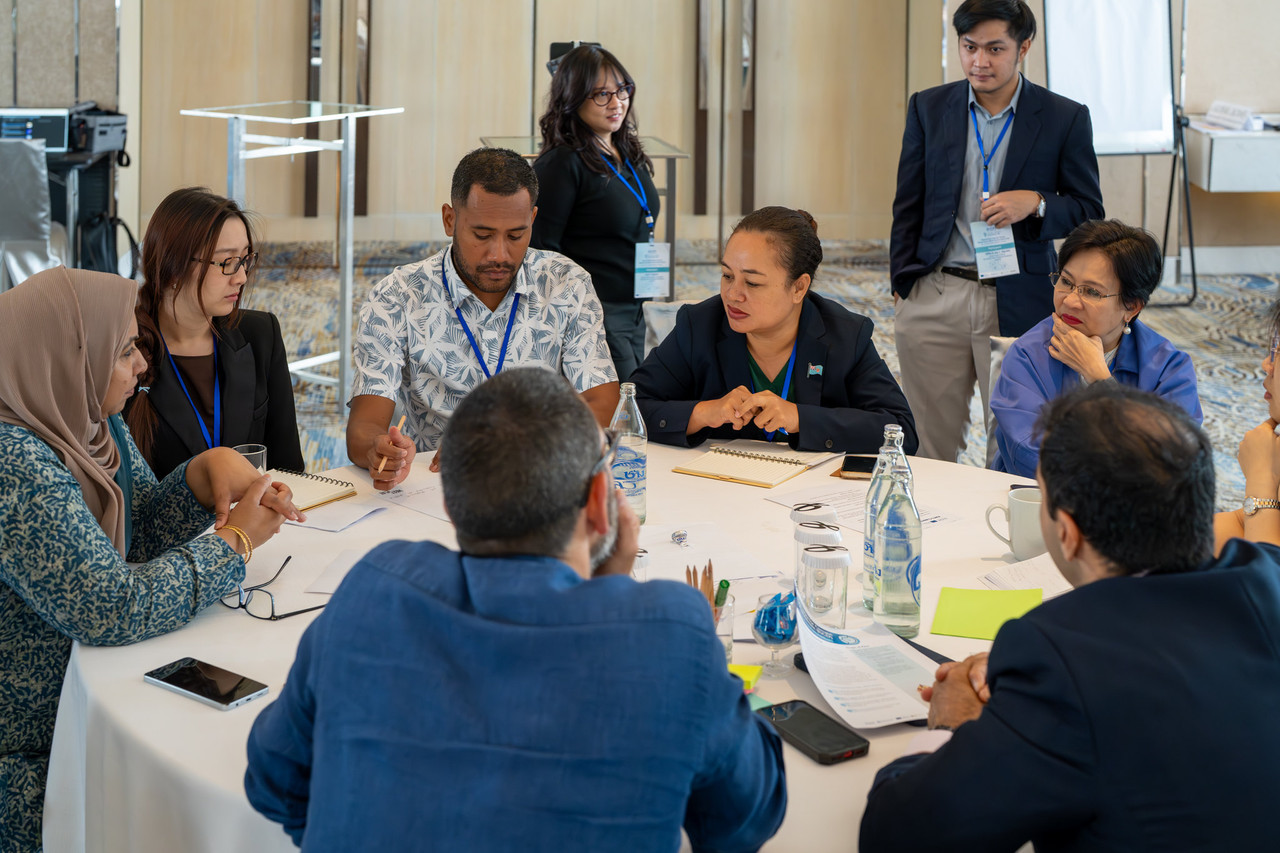
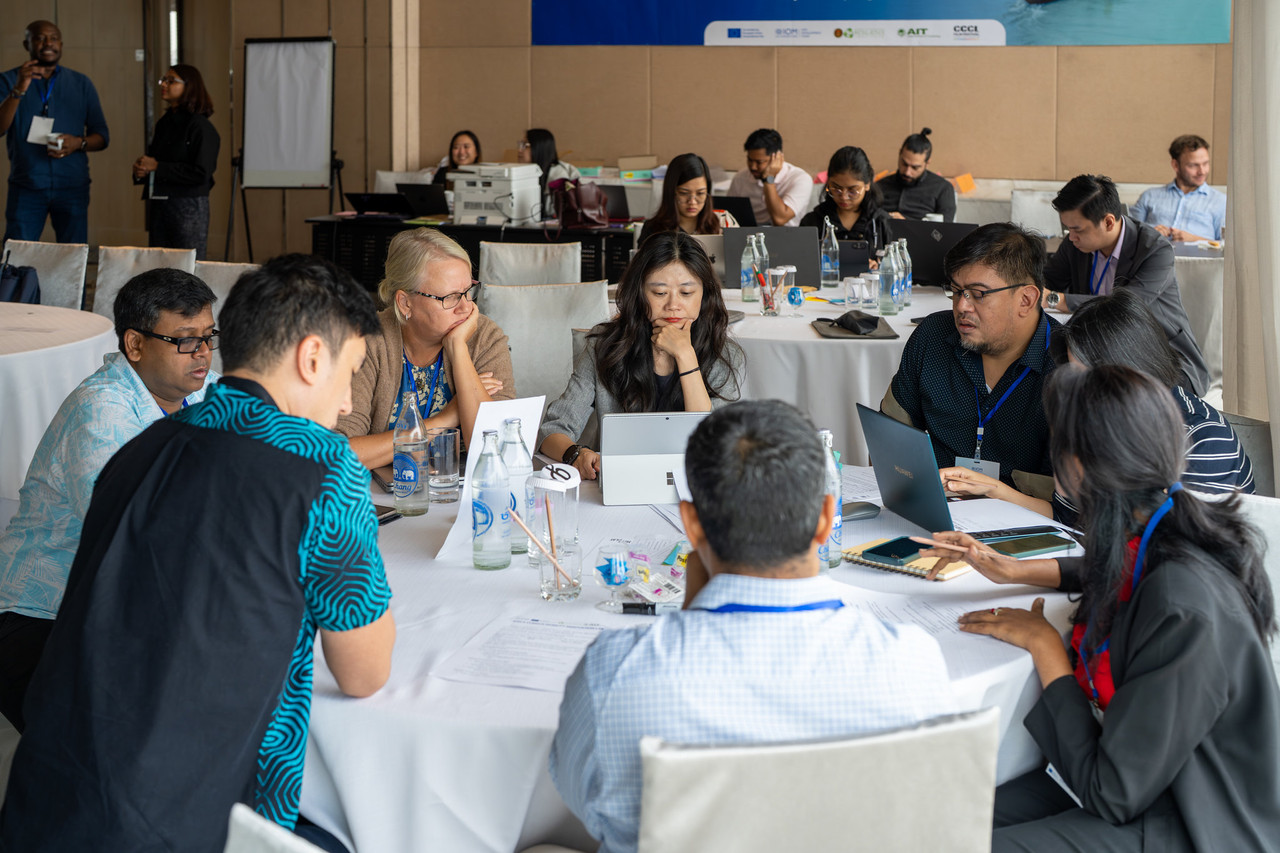
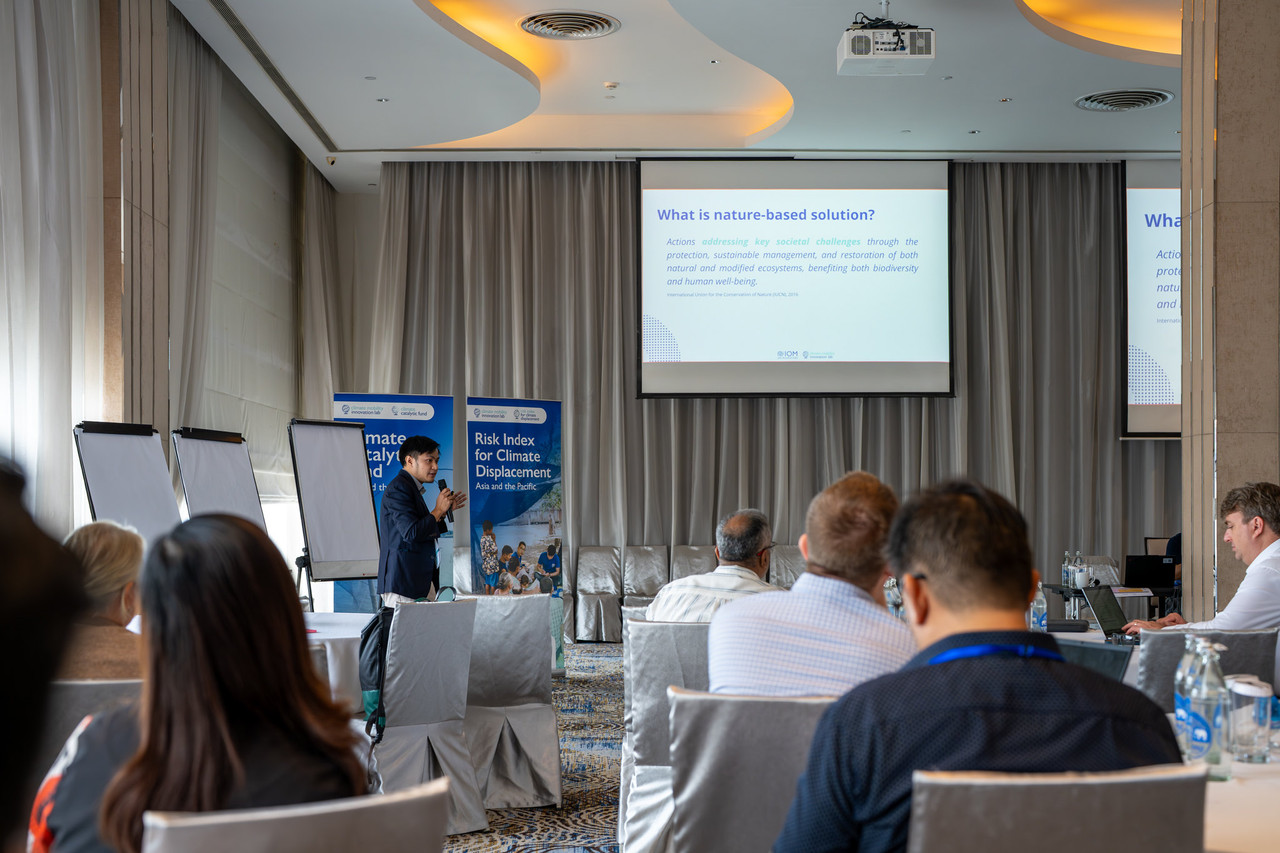
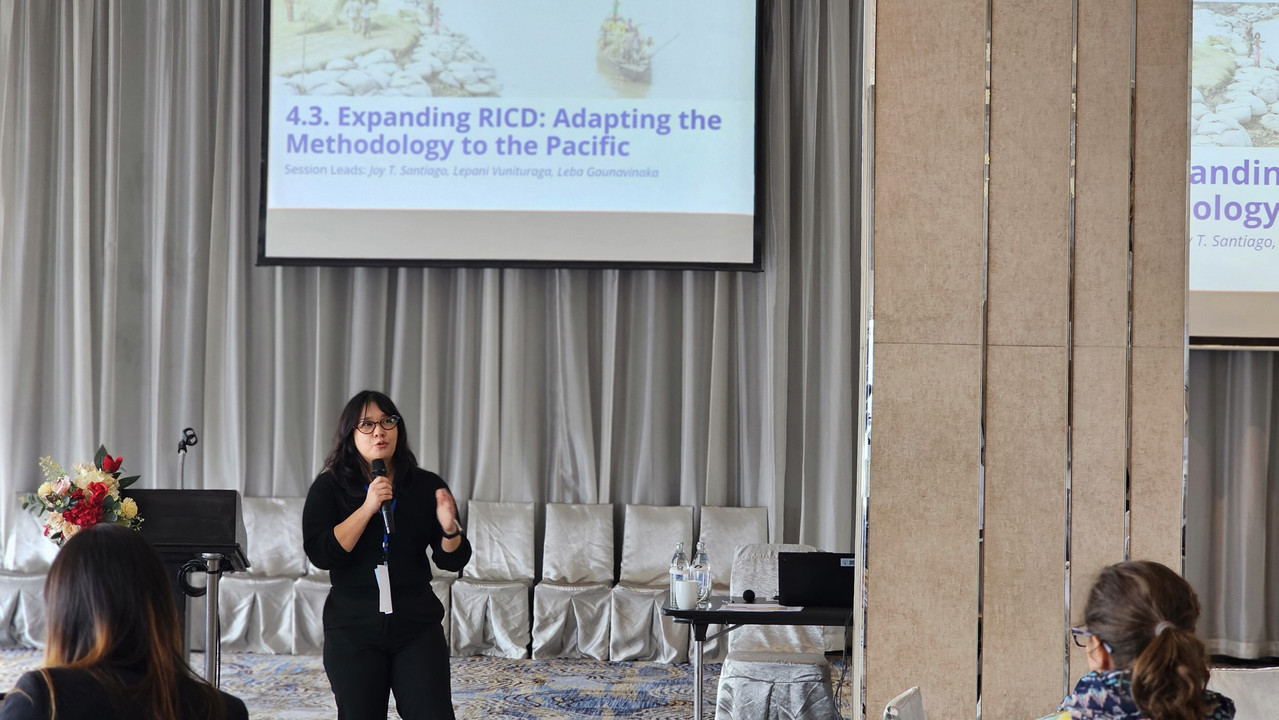
This year’s symposium builds on progress from the launch of the RICD and the co-creation workshop conducted in 2024. It became a venue for sharing key insights on innovations related to climate change and human mobility. The Technical Workshop served to strengthen both RICD macro- and micro-level data collection methods and the capacities of staff involved, as well as to continue fostering multi-disciplinary and multi-stakeholder collaboration in the design and implementation of the RICD. It also provided an opportunity to explore opportunities to scale up the RICD in Fiji and Vanuatu.
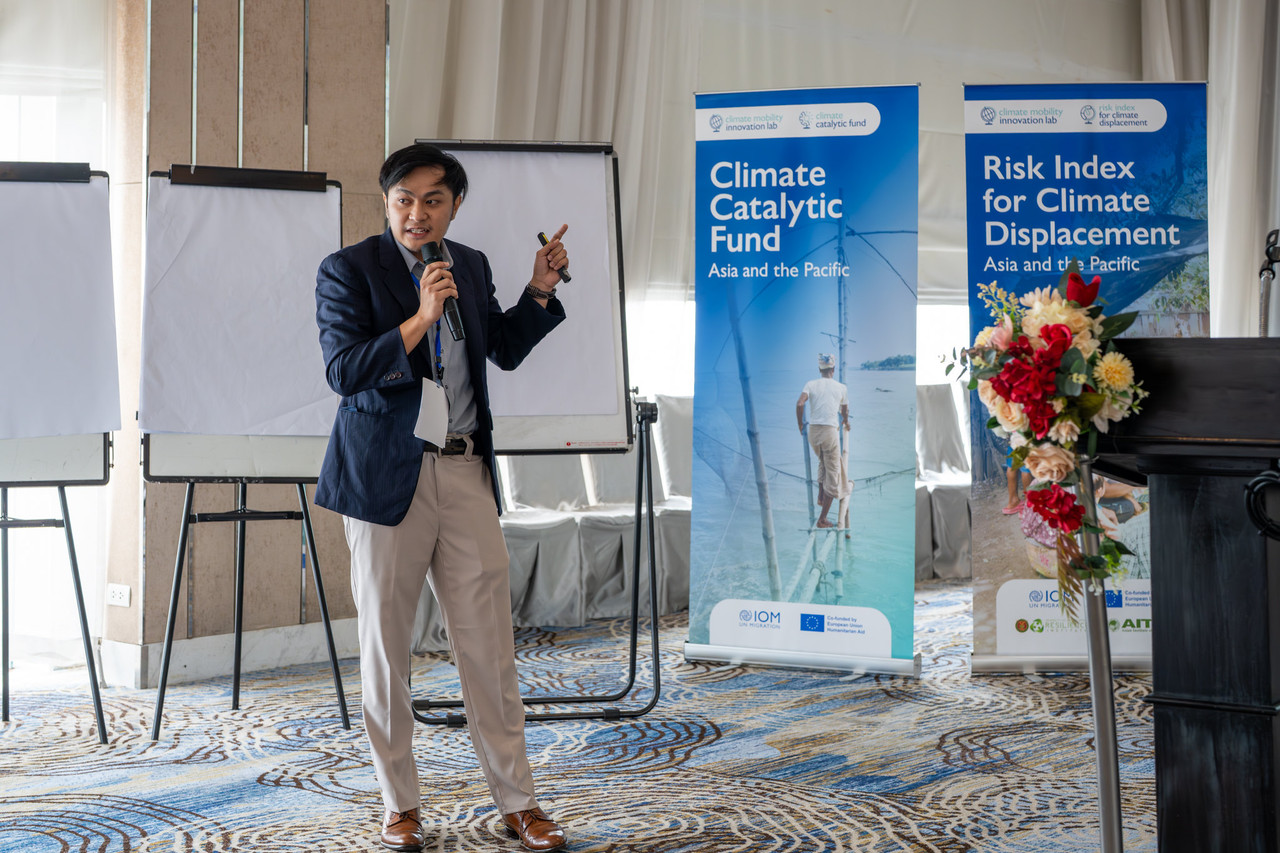
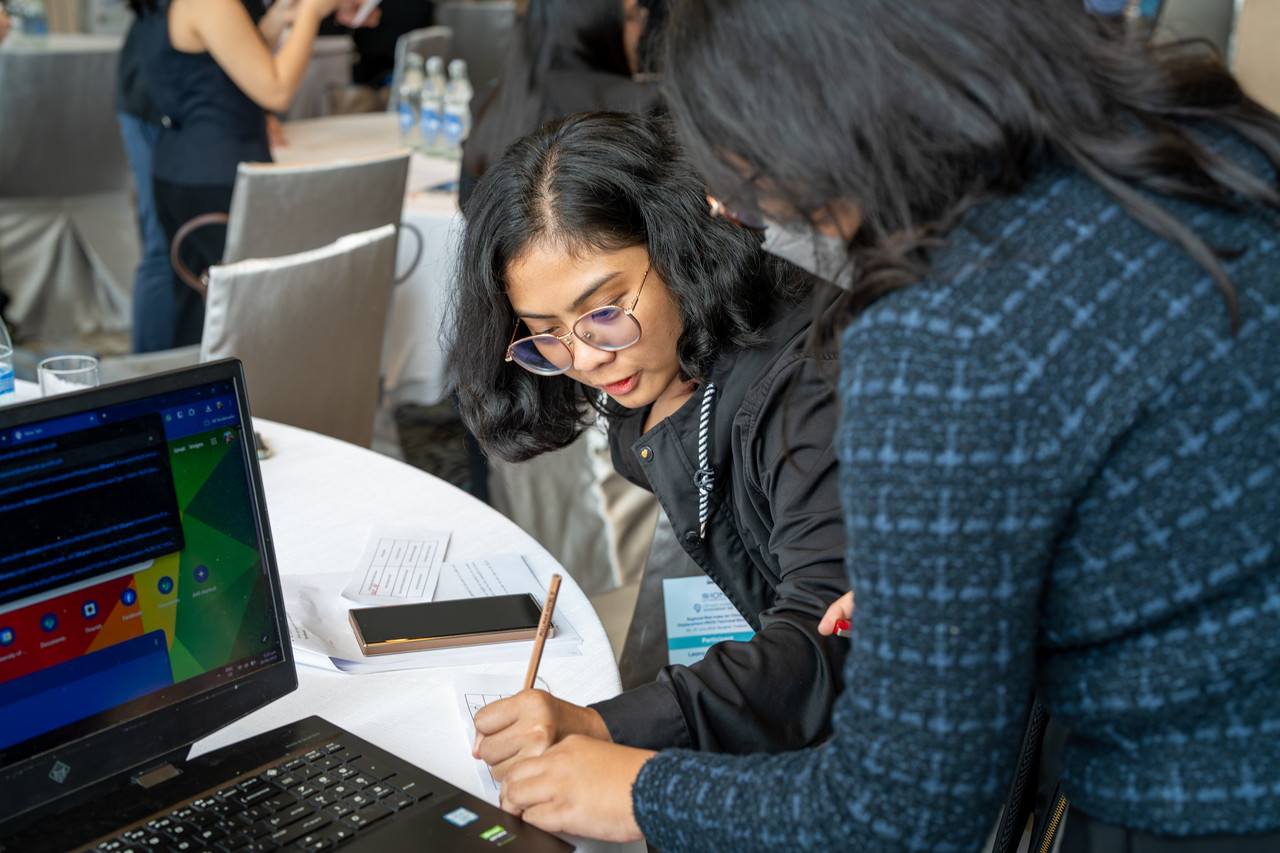 Engr. Timbal reflects on and shares experiences in the Philippines, where close collaboration with local government improved survey design, data relevance, and field access.
Engr. Timbal reflects on and shares experiences in the Philippines, where close collaboration with local government improved survey design, data relevance, and field access.
